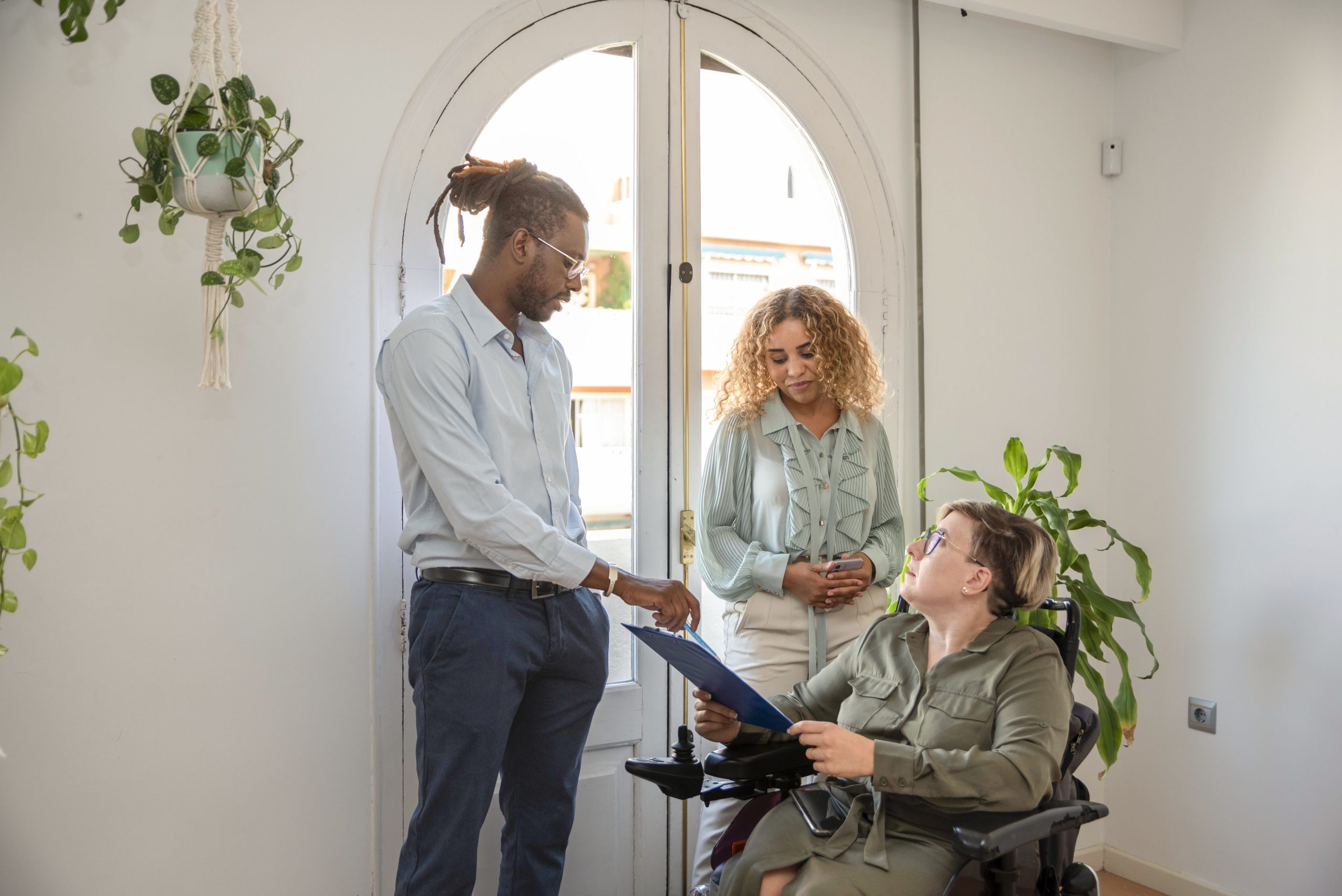When applying for Social Security Disability Insurance (SSDI) or Supplemental Security Income (SSI), one of the most important steps in the process is the interview with a representative from the Social Security Administration (SSA). This interview can significantly influence the outcome of your claim, and being well-prepared is essential.
Whether you’re attending your interview in person or over the phone, preparation, honesty, and professionalism can make a meaningful difference. Merryl Jones – Second Chance Lawyer, an experienced Social Security Disability lawyer in Temple, TX, and Waco, TX, has helped many clients successfully navigate their disability interviews. Below, we provide a comprehensive guide to help you approach your SSDI interview with confidence and clarity.
In-Person Social Security Disability Interviews
If your interview is scheduled to be conducted in person at a Social Security office, there are several steps you can take to ensure a smooth and productive meeting.
1. Arrive Early
We recommend arriving at least 10–15 minutes before your scheduled appointment. Promptness shows respect for the process and the professionals you’re working with. Being early also allows time to find parking, go through security, and mentally prepare before the interview begins.
2. Dress Appropriately
Wear modest, professional clothing to your appointment. While SSA interviewers are not there to judge your appearance, dressing appropriately demonstrates that you take the process seriously. Avoid wearing casual attire such as shorts, flip-flops, or graphic T-shirts.
3. Avoid Bringing Children
We understand that many of our clients have families, but if possible, make arrangements to leave children at home. An in-person disability interview requires focus and attention, and the presence of young children can be distracting for both you and the interviewer.
Telephone SSDI Interviews
Many Social Security Disability interviews are conducted by phone. While these interviews are more convenient in some ways, they also require thorough preparation.
1. Be Ready Before the Call
Wait by your phone for at least 10 minutes before the scheduled time. Make sure the number you’ve provided is correct and has a strong, reliable connection. A landline is ideal, but if you’re using a cell phone, ensure it is fully charged and keep a charger nearby.
2. Minimize Distractions
Designate a quiet space for the interview. Turn off the television, radio, or other electronic devices that could cause background noise. Inform everyone in your household that you’re expecting an important call so that the line remains free and interruptions are avoided.
3. Be Prepared for Delays
SSA interviewers often have a full schedule, so don’t be alarmed if the call comes a few minutes late. Stay near your phone until the call is completed, and be patient if the interviewer needs to confirm information or place you on hold.
Essential Documents to Have Ready
Whether your interview is in person or over the phone, having the proper documentation on hand is crucial. You should gather and organize all relevant paperwork before your appointment.
Here’s what you’ll need:
- Form SSA-16-F6: Application for Disability Insurance Benefits (for SSDI claims)
- Form SSA-8000-BK: Application for Supplemental Security Income (for SSI claims)
- Disability Report: A detailed record of your condition, treatment, and work history
- Medical Records: Include all relevant test results, doctor’s notes, and treatment summaries
- Communication Records: Any correspondence you’ve had with SSA or medical providers
We recommend organizing your documents in an accordion file or clearly labeled folders. Being organized shows that you are serious about your claim and helps ensure you don’t forget to mention important details.
What to Say—and What Not to Say
The SSA uses the interview to determine whether your condition qualifies as a disability under federal guidelines. How you describe your symptoms, limitations, and daily challenges can either support or undermine your claim.
Avoid Saying “I Can Still Work”
Even if you feel capable of doing certain tasks, be careful about saying that you can still “work.” The SSA evaluates whether you can engage in substantial gainful activity (SGA). Statements like “I can do some desk work” or “I help my neighbor with chores” may be used to argue that you are not disabled. Instead, explain how your symptoms prevent you from working consistently or for extended periods.
Don’t Downplay Your Condition
Many claimants minimize their symptoms to avoid sounding like they are complaining. However, saying things like “It’s not that bad” or “I can manage most days” may signal to SSA that your condition is not severe enough to qualify for benefits. Be honest about your pain levels, fatigue, mobility issues, or cognitive challenges, and explain how they impact your daily life.
Be Prepared to Discuss Treatment
If you haven’t followed your doctor’s treatment plan, SSA may question the validity of your claim. If you have a valid reason for not pursuing a treatment, such as financial hardship, fear of side effects, or previous unsuccessful attempts, explain that clearly. For example, “I couldn’t afford the recommended surgery,” or “I had a reaction to the medication and my doctor is seeking alternatives.”
Avoid Saying “I Feel Better Today”
Even if you’re having a good day, statements like “I feel good right now” can give the false impression that your condition has improved. SSA is interested in your typical day, not an unusually good one. Describe your condition over time and highlight fluctuations or flare-ups that affect your ability to function consistently.
Additional Tips for a Smooth Interview
Stick to the Facts
Everything you say should align with your application and medical records. Don’t exaggerate or fabricate symptoms; the SSA has experience identifying inconsistencies.
Maintain a Respectful Tone
Always speak respectfully, even when discussing difficult experiences with employers, doctors, or SSA staff. Negative remarks can reflect poorly on your character and raise concerns about credibility.
Discuss Assistive Devices and Accommodations
Mention any devices you use to help manage your condition, such as hearing aids, wheelchairs, canes, or braces. If your doctor has documented any of these as a medical necessity, make that known. Also mention any workplace accommodations or modifications to your home that allow you to function.
Answer All Questions Fully
Avoid giving short or vague responses. Provide complete answers that give the interviewer a full picture of your limitations and how your disability affects your life.
Why Work with a Social Security Disability Lawyer?
The SSA interview can be daunting, but you don’t have to go through it alone. Merryl Jones – Second Chance Lawyer, a Social Security Disability lawyer in Waco, TX, and Temple, TX, offers compassionate, knowledgeable legal guidance through every stage of your claim, from filing the initial application to preparing you for interviews and appeals.
Our team understands how the SSA evaluates claims and how small mistakes can make a big difference. We ensure that your paperwork is complete, your evidence is strong, and you are fully prepared to present your case clearly and honestly.
Contact Merryl Jones – Second Chance Lawyer Today
If you’re facing a Social Security Disability interview or preparing to apply for benefits, don’t wait to seek legal support. Merryl Jones – Second Chance Lawyer, is committed to helping you get the benefits you need. Our experienced team in Temple and Waco, TX, is ready to walk you through the entire process and advocate on your behalf.
Schedule a free case evaluation today by contacting us online to learn how we can help strengthen your claim and protect your rights throughout the disability application process.



